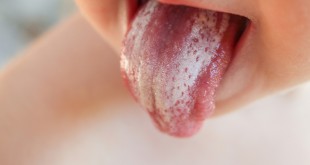 When you are sick, you and your baby will almost always benefit from continuing to breastfeed. There are very few illnesses that require a mother to stop nursing.
When you are sick, you and your baby will almost always benefit from continuing to breastfeed. There are very few illnesses that require a mother to stop nursing.
Since most illnesses are caused by viruses that are most contagious before you even realize you are sick, your baby has already been exposed before you even develop symptoms (such as fever, diarrhea, vomiting, rash, runny nose, cough, etc). Continuing to breastfeed will help protect your little one, because your body produces antibodies to the specific bug that is causing the infection, and you pass them on to the baby in your breast milk. Often, a breastfed baby will be the only member of the family who doesn’t get sick. If he does get sick, he will usually have a much milder case than the older members of the family. Illnesses are most often transmitted through skin contact and secretions from the mouth and nose. Be sure to wash your hands often, and try to avoid face-to-face contact, and sneezing near the baby.
Breastfeeding your baby while you are sick makes it easier for you to rest. Tuck him into bed with you to nurse, then have someone take him away when you’re done. I remember being so sick that my older kids would bring the baby in to nurse every couple of hours, and I was so out of it that I didn’t even know when she nursed.
Weaning abruptly is never a good idea, especially when you are sick. You put yourself at risk for engorgement and mastitis, as well as the emotional distress of sudden weaning for both you and the baby.
You need to make sure that you get plenty of fluids when you’re sick, because you don’t want to become dehydrated. Your milk supply may decrease during and immediately after your illness, but it will quickly build back up when you feel better.
Every year, over 4.3 million women in the U.S. have babies. Nearly all of these moms will use at least one drug while they are pregnant or nursing, and they are just fine. You must always consider the risk/benefit ratio when making decisions regarding whether or not to take a medication while pregnant or lactating, weighing the very unlikely (for the vast majority of drugs) risk of the medication versus the very real benefits that breast milk provides for your baby.
Here is some general information about OTC (over the counter) drugs and breastfeeding – remember, though, that drug manufacturers often change their active ingredients, so always read the label carefully and/or consult your doctor before taking any drug when you are nursing. The article Drugs and Breastfeeding has more information to share with your health care provider.
- Analgesics: avoid using extra-strength formula when regular strength will do. Aleve, Anacin-3 Regular Strength, Tempra, Tylenol (acetaminophen), and Motrin or Advil (Ibuprofen) are also considered safe. Ibupropen is the preferred analgesic in breastfeeding mothers as only very small amounts get into milk (0.6% of maternal dose)
Aspirin (salicylate) is not recommended for use during pregnancy or lactation due to the small risk of Reye’s syndrome in infants. For that reason, Excederin isn’t recommended. It contains a combination of acetaminophen, caffeine, and aspirin. The caffeine and acetaminophen aren’t considered harmful, but the aspirin carries a very small risk of Reye’s syndrome, and while it is very unlikely that its occasional use would cause a problem, it’s better to avoid if if possible. - Antacids and digestive aids which are usually safe to take: Lact-Aid, Lactobacillus acidophilus, Tums (also a good source of calcium), and Tums E-X or Ultra, Mylanta or Mylanta extra-strength, Mylicon, Maalox, DiGel, Gaviscon, Alka-Seltzer, Phazyme, Rolaids, and Tagamet.
- Artificial Sweeteners: Saccharin and Splenda (sucralose) are not known to cause any problems in nursing moms. Aspartame (Equal or NutraSweet) is safe unless your baby has PKU, a very rare metabolic disorder which every baby should be screened for soon after birth – ask your doctor if you’re not sure.
- Cough, Cold, and Allergy Preparations: Try to use single ingredient, short acting forms of the drug.
- For sore throats, avoid lozenges and sprays which contain phenol, or hexylresorcinols. (These include Cepastat, Listerine, and Sucrets lozenges, and Vicks Chloraseptic Sore Throat Spray). Instead, choose Celestial Seasonings, Cepacol Lozenges, NICE Lozenges, and Vicks Lozenges – these contain menthol/and/or benzocaine rather than phenol. You can also use Sucrets Lozenges if they contain dyclonine rather than hexylresorcinols.
- Sinus congestion: Pseudoehpedrine is a nasal decongestant which is considered safe, as very little of it is excreted into breastmilk. Nearly all OTC cold medications include pseudoehpedrine. New research shows that it may decrease milk supply, especially in moms who are nursing babies older than eight months. If a mother’s milk supply is low to begin with, she needs to be especially cautious when using medications containing pseudoephpredrine. These meds not been shown to be harmful to babies, but may decrease milk supply, especially if used by a mom with an older baby for long periods of time.
- If you want to use a nasal spray to relieve sinus congestion, the majority of them are safe. Look for preparations that contain sodium chloride, oxymetazoline, or phenylephrine (such as Afrin, Breathe Free, or Dristan, or Neo-Synephrine). Avoid those containing propyhlexedrine (Benedrex). desoxyephedrine (Vicks Vapor Inhaler), or Lemetamfetamine (Nuprin Cold Relief Inhalor).
- Most non-sedating antihistamines used for treating allergies are considered safe. Brand names include Claritin, Actifed, Zyrtec, and Allegra. You may find that sedating antihistamines like Benadryl make your baby sleepy and cause him to nurse less effectively.
- Try to avoid long acting forms and multiple ingredients, and watch for drowsiness in the baby or a decrease in your milk supply. Drink extra fluids, because drugs that dry up secretions in other parts of your body may decrease your milk supply as well. Your supply will build up when you feel better.
- For coughs: Avoid products with an alcohol content of over 20%. Robitussin, Mucinex, Triaminic Expectorant, and Vicks Nyquil are not known to be harmful, but watch for infant drowsiness. Expectorants like Guaifenesin(the main ingredient in Mucinex, Robitussin, Benylin) don’t suppress coughs. They loosen up the mucus in the respiratory tract to make it easier to cough up. They haven’t been known to cause any adverse effects in nursing babies, but they also don’t seem to be very effective. Avoid multi-action formulas such as Tylenol Multi-Symptom Cough medication and Vicks Nyquil Liquid or Liquicaps.
Dextromethorphan is an antitussive/cough preparation that seems to work by elevating the cough threshold in the brain. It’s the main ingredient in Benylin and Robitussin DM. It’s considered to be the safest of the antitussives, and the one least likely to transfer into milk. As with other cold meds, watch your baby for drowsiness.
- For constipation: Use formulations containing pysillium, docusate, methylcellulose,or magnesium hydroxide (Citrucel, Colace, Fiberall, Fibvercom, Maalox Daily Fiber, Metamucil, Mylanta, Philips’ Milk of Magnesia, Serutan, or Surfak. Avoid those containing mineral oil, phenolphthalein, bisacodyl, and castor oil (Correctol, Dulcolax, Ex-Lax, Feen- a-Mint, Peri-Colace, and Senokot). These may cause stomach upset in the baby.
- Antidiarrheal preparations containing ‘loperamide’ (such as Imodium, Immodium A-D, Maalox Antiarrheal, Pepto Diarrhea Control, and Kaopectate II Caplets are usually considered safe However, antacids containing bismuth subsalicylate (Pepto-Bismol and Kaopectate) aren’t recommended for regular use by nursing moms because they have (rarely) been associated with Reye’s Syndrome in children.
- Most sleep preparations, including Nytol QuickCaps, Sleep-Eze, Sominex Formala 2, and Unisom Maxium Sleepgels, are ok. Avoid those which contain doxylamine, (such as Nytol Maximum Strength, and Unisom), and always watch for excessive sleepiness in your baby.
- For nausea and vomiting: Benadryl, Emetrol, and Dramamine are usually safe. Again, watch for drowsiness, and try to take the dose after you nurse. Avoid compounds containing meclizine or cyclizine, such as Bonine, Dramamine II, and Marezine.
- Most weight control products such as Acutrim and Dexatrim contain phenylpropanolamine and large amounts of caffeine. It is best to avoid them.
- All the major hemorrhoid preparations, such as Americaine, Anusol, Nupercainal, Preparation H, and Tucks gel or pads are safe to use while breastfeeding.
Let’s discuss specific illnesses now. First, the scariest one of all – cancer. Cancer causes malignant blood cells to multiply rapidly and out of control. If detected early and treated promptly, many types of cancer can be cured completely. When cancer is suspected, there are several types of diagnostic tests that may be used; some affect breastfeeding more than others.
Early detection is the key. Remember to do your monthly breast exam, and have regular mammograms as recommended by your health care provider.
X-rays: human milk is not affected by diagnostic x-rays, and you can safely nurse immediately afterward.
- MRI (magnetic resonance imaging) is a non-invasive technique that will not affect your breast milk. However, as part of the procedure, you may be injected with a dye that may or may not be harmful, so if you are concerned, you can discard the milk pumped after the procedure. Consult a knowledgeable health care provider for specifics on how long to wait before resuming breastfeeding.
- Ultrasound and CAT scans: these are non-invasive procedures that should not affect your breast milk or interfere with breastfeeding.
- Mammograms can be performed while you are nursing, without affecting your breast milk. Because the breast tissue is denser during lactation, it may be more difficult to read the results. Be sure to empty your breast by pumping or nursing before the procedure.
- Fine-needle aspiration cystologic study: If you have a breast lump, this is a simple, nearly painless out-patient procedure performed in your doctor’s office to determine the nature of a solid mass. There should be no reason to interrupt breastfeeding.
- If you need to undergo radioactive isotope testing, you will need to wean your baby temporarily. If you need to undergo radiation therapy, you can continue nursing unless both breasts are being radiated. The treatment will not affect the function of the un-radiated breast. If you must have chemotherapy and treatment with radioactive compounds, temporary or permanent weaning will be necessary.
- The other really scary illness is AIDS, or HIV infection. There is evidence that the HIV virus can be transmitted through breastfeeding. The average risk for HIV transmission is 1 in 7 in children born to, and breastfed by an infected woman. This means that although the majority of cases of viral transmission occur during late pregnancy and delivery, more than one-third of infants acquire the virus through breastfeeding. The risk is real, so at least in the US, where we have access to nutritionally adequate infant formulas, and clean water and sanitation, HIV positive mothers probably should not breastfeed their babies. In developing countries, where the risk of artificially feeding the baby may outweigh the risk of transmitting the virus, the issue is not as clear. New antiviral therapies are showing great promise in preventing the transmission of the HIV virus when given to women during pregnancy, and researchers continue to work toward reducing the incidence of this devastating disease.
Other illnesses in the mother include:
- Herpes Simplex I (cold sores) and Herpes Simplex II (Genital Herpes): The Herpes virus can be fatal to newborns up to three weeks of age. Genital sores can be transferred to the breast. If you are pregnant, you should talk to a doctor who is knowledgeable about the virus to decide which precautions to take. Generally, the baby can continue to nurse if he doesn’t touch the sores. Until all the sores are dried, be sure to: wash your hands often, especially after touching the sores and before touching the baby; keep clean coverings over the sores; and avoid kissing your baby if you have sores on or near your mouth. If the sore is on the nipple or areola, you need to express milk from that breast until the sore heals. You can continue nursing on the unaffected breast.
- If you have cardiac problems, you can and should continue nursing. The release of prolactin has a relaxing effect, and can benefit women with cardiac problems.
- If you have high blood pressure, the relaxing effects of prolactin are also beneficial. Low-dose diuretics (often used to treat hypertension) are compatible with breastfeeding, but high doses may decrease your milk supply. Many beta-blockers used for cardiovascular treatment are also compatible with breastfeeding.
- If you have carpal tunnel syndrome, it usually clears up within a couple of months of giving birth. Treatments such as wearing splints, elevating the hand, and the use of low-dose diuretic drugs, are preferable to more aggressive treatments. If steroid treatments are necessary, consult your health care provider to discuss the lowest possible doses.
- If you get chickenpox, (and this is rare because most women of child-bearing age were exposed during childhood) it can be a serious concern, because it can be fatal in a baby who catches it in utero, or a very premature baby. If you are pregnant and have been exposed, your doctor can do a blood test to determine if you have immunity to the disease. If you are diagnosed with chickenpox within five days before giving birth, you may need to be separated from your newborn for a few days to minimize the chance of infection. If this happens, express your milk and give it to your baby. If you have the virus, your baby will be given a ZIG shot. Most babies who catch it after birth will have a very mild case. Chickenpox is no longer considered contagious when you have had no new eruptions for 72 hours, and all the lesions have become crusted. If you have older children when the baby is born, keep them away from the baby. If you have had it yourself and have immunities, the risk of the baby catching it is greatly reduced.
- If you eat a food that is contaminated with botulism, salmonella, E.coli, or other bacterias or toxins, you may develop acute intestinal symptoms (“food poisoning”) such as vomiting, diarrhea, or cramps. Usually, these toxins stay localized in your intestinal tract and don’t pass into your milk. Make sure you drink enough fluids to avoid becoming dehydrated, but continue nursing your baby.
- Hepatitis A is a viral infection of the liver, which causes jaundice in the mother. It is transmitted through contact with infected blood or fecal matter. There is no reason to discontinue nursing if you have Hepatitis A.
- Hepatitis B is a virus that causes symptoms similar to Hepatitis A, but they last longer. It is transmitted by contact with body fluids such as blood, saliva, and mucus, and can also be transmitted sexually. If you contract it during pregnancy, your baby will be give several doses of the Hepatitis B vaccine within the first 12 hours of life, and breastfeeding can continue. If you get it after the baby’s birth, he will be vaccinated and you can continue nursing.
- Hepatitis C is a virus that begins with a mild infection, but then progresses to jaundice. Half of those who contract it will develop chronic liver disease. It is transmitted through blood, needles, and sexual contact. The risk of transmission is minimal. If you are in the acute phases of the illness, you may need to stop nursing temporarily until your symptoms subside. Discuss this with your doctor.
- If you have infectious diseases such as Leprosy, Lyme Disease, Malaria, or Rubella (German Measles) you can continue nursing. If you contract measles, it can be fatal in an unborn or newborn baby (congenital measles). The chances of you contracting measles before birth is rare, because almost everyone has been vaccinated during childhood. If you have been exposed, and aren’t sure if you are immunized, your doctor can order a blood test to determine if you have immunity to the disease. If you do contract measles and are contagious at the tine of birth, you may need to be separated from your baby for a few days to reduce the chance of infection. If this is necessary, express your milk and feed it to your baby until you are no longer contagious and can resume nursing.
- If you have an STD (sexually transmitted disease) during pregnancy, you may infect your newborn during delivery, and will require treatment immediately postpartum. STDs such as Chlamydia, Gonorrhea, Syphllis, and Trichomonas do not require the discontinuation of breastfeeding. With Syphllis, follow the same precautions as you would with Herpes. With Trichomonas (a common vaginal infection) you will probably be prescribed Flagyl. According to Dr. Jack Newman, MD, there is no need to stop breastfeeding during either short or long term treatment while taking this drug.
- Women with chronic illnesses can almost always breastfeed. If you have Cystic Fibrosis, you can produce normal breast milk, but must monitor your diet carefully to make sure you get the nutrients you need. If the disease is stabilized, and your weight gain is adequate, you should be able to continue nursing.
- If you are diabetic, breastfeeding offers many advantages. It reduces your stress level, reduces the risk of the baby developing diabetes, and makes the diseases more manageable because your body’s natural response to the hormones responsible for lactation is helpful. You will need to monitor your blood-glucose levels carefully because the hormonal changes of pregnancy and childbirth can cause changes in the levels. If you are diabetic, your baby is more likely to become jaundiced after birth. Insulin is compatible with breastfeeding, because it doesn’t transfer into human milk. Your milk may come in a day or two later if you are diabetic, so monitor your baby’s intake carefully. Many diabetic mothers experience a partial or total remission from their diabetes as long as they nurse. Your insulin requirements may be significantly less than before you became pregnant. Some mothers need to decrease their insulin requirements by as much as 27% while they are lactating. Monitor levels closely, and discuss adjusting your medication with your doctor. Diabetes makes you more susceptible to all sorts of infections, including yeast and mastitis. See articles on Breast Infections and Plugged Ducts and Yeast Infections for information on how to diagnose, prevent, and treat these problems.
- Mothers with epilepsy can nurse. At least half of all epileptics are able to completely control their seizures with medication, and most of the rest achieve at least partial control. There are two major concerns: that you remain seizure free and able to care for your infant, and that the medications you take to control the seizures don’t adversely your baby. The medications needed to control the seizures may cause sedation and poor sucking in your baby, so you may need to offer occasional bottles of formula if he seems to be sedated by the medication. You must monitor his weight gain carefully, and work closely with your doctor to ensure that you remain seizure free and your baby gains weight adequately. Often mixed feedings are necessary in the early postpartum period, and once his metabolism increases, your can resume complete breastfeeding. Often you need to pump to ensure an adequate milk supply. In case of seizure activity, consider practical tips such as: nursing in a padded chair; elevating your feet with a small stool; using guardrails or pillows if you nurse in bed; or placing a playpen on each floor of the house so you can put him down in a safe place if you feel a seizure coming on. When you go out with your baby, attach a name tag with your name , medical condition, and contact information on it.
- If you have Multiple Sclerosis (MS), a degenerative muscle disease, you can still breastfeed. Your baby can’t contract it through nursing. There is evidence that the risk of contracting MS is lower in individuals nursed for more than six months as opposed to babies never nursed or nursed for less than six months.
- Thyroid levels can change during pregnancy and lactation, even with mothers who never had thyroid irregularities before. A low milk supply may be the only symptom of a low thyroid. Nearly 2/3 of the cases of low thyroid in women are diagnosed postpartum.
- If you have a history of thyroid problems, ask your doctor to monitor your levels regularly so your medication can be adjusted. An underactive thyroid can cause fatigue, poor appetite, and depression. Thyroid supplements taken during lactation will not hurt your baby, because they just bring the levels up to where they should normally be.
- An overactive thyroid can cause serious health problems. If you need to take a thyroid suppressant, you need to work closely with your doctor to make sure the baby’s levels aren’t lowered as well An alternative to weaning would be to give the baby a thyroid supplement if his levels fall below normal. Let your doctor know how important nursing is to you so he will work with you on adjusting your medication so you can continue to nurse. If radioactive therapy is recommended, temporary weaning may be necessary. ( Find a doctor who is willing to work with you on maintaining your milk supply and resuming nursing after the radiation is eliminated from your body.
Keep in mind that all of the OTC medications approved for use in nursing mothers are very safe, and in nearly all cases, the risk of side effects on your baby is extremely small. Due to concerns about liability, many health care providers (HCPs) are going to err on the side of caution, just in case. This doesn’t mean that taking a decongestant or an antacid or a cough drop is dangerous.
You know those package inserts that come with every single drug? They are going to list every possible side effect known to man, even if the chances of anyone actually experiencing these are one in a million. They are even more cautious when telling nursing pregnant or nursing moms a medication is safe, even if there has never been a single case of a baby being affected by the drug. The lack of controlled studies (very hard to do with pregnant or nursing mothers) alone is enough to make HCPs say that a drug isn’t safe, even if nursing moms have been taking it for decades with no problems. They do this for two reasons: one, of course, is to make sure that you observe your baby in case he does experience side effects, as unlikely as that is; and two, because they don’t want to get sued.
I have an opinion about which of these two reasons HCPs give the most weight in making their recommendations, but I will keep that to myself. I will say that all the drugs on this list that are considered safe really are. HCPs are going to make sure of that before they give any kind of approval, so if you need to take any of these medications, do it. You don’t have to be a martyr. You are not going to hurt your baby. If you’ll notice, the most common side effects to be on the lookout for in your baby are drowsiness or sedation. I don’t know about you, but when I was a nursing mom and I got sick enough to even consider taking a medication, having a baby who was a little sleepier than usual for a short time was not necessarily a bad thing.
It’s almost always possible for a mother to continue nursing, even in the rare cases where temporary weaning is necessary. Remember all the advantages of human milk and how important breastfeeding is to you and your baby, and try to find a supportive health care provider who believes that nursing is as important as you do.
One helpful resource for nursing moms and their HCPs is Dr. Thomas Hale’s new InfantRisk Center. The InfantRisk Center provides up-to-date evidence-based information on the use of medications during pregnancy and breastfeeding. You can call them Monday-Friday 8am-5pm central time at (806)-352-2519, or visit their website at infantrisk.com.
The Infant Risk Center recently released an iPhone/Android app with info on med safety of pregnant & breastfeeding moms, available to HCPs for a yearly fee. There is also a consumer version of the app called MommyMeds. Find out more at their website: http://www.infantrisk.com/
Another resource is the free Apple LactMed App for iPhone/iPod Touch. You can use it to find information about maternal and infant drug levels, possible effects on lactation and on breastfed infants, and alternative drugs to consider. You can find out more at http://toxnet.nlm.nih.gov/help/lactmedapp.htm
The information in this article came from the AAP Policy Statement, The Transfer of Drugs and Other Chemicals Into Human Milk, revised September 2001, and Dr. Thomas Hale’s book Medications and Mothers’ Milk, 15th Edition, 2012
(Edited September, 2019)
Anne Smith, IBCLC
Most illnesses are caused by viruses that are most contagious before you even realize you are sick, so your baby has already been exposed before you even develop symptoms. Continuing to breastfeed will help protect your little one, because your body produces antibodies to the specific bug that is causing the infection, and you pass them on to the baby in your breast milk.
 Breastfeeding Basics
Breastfeeding Basics




